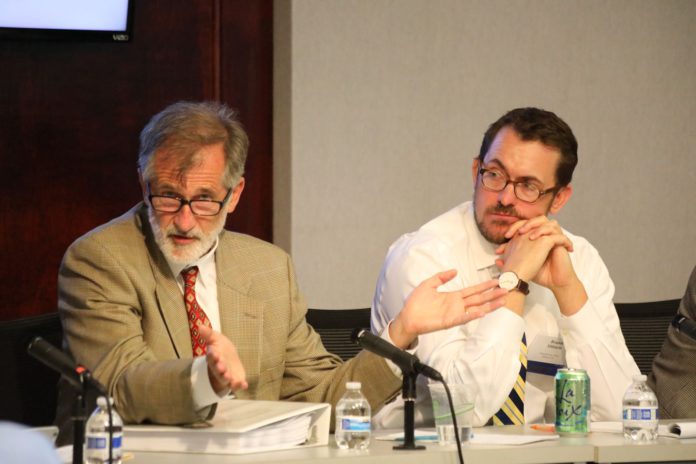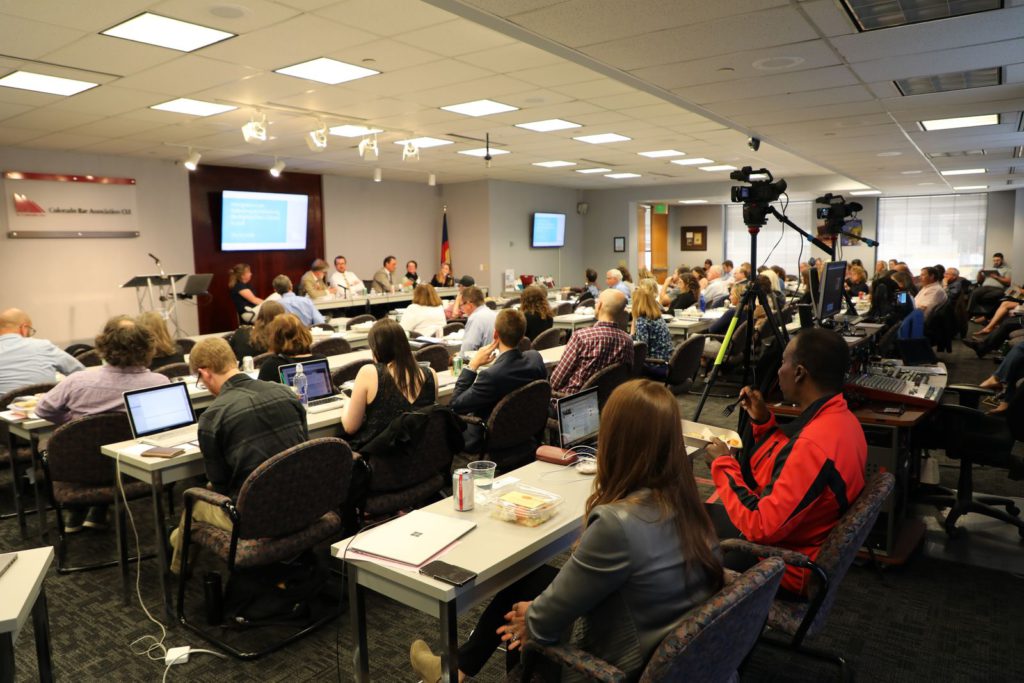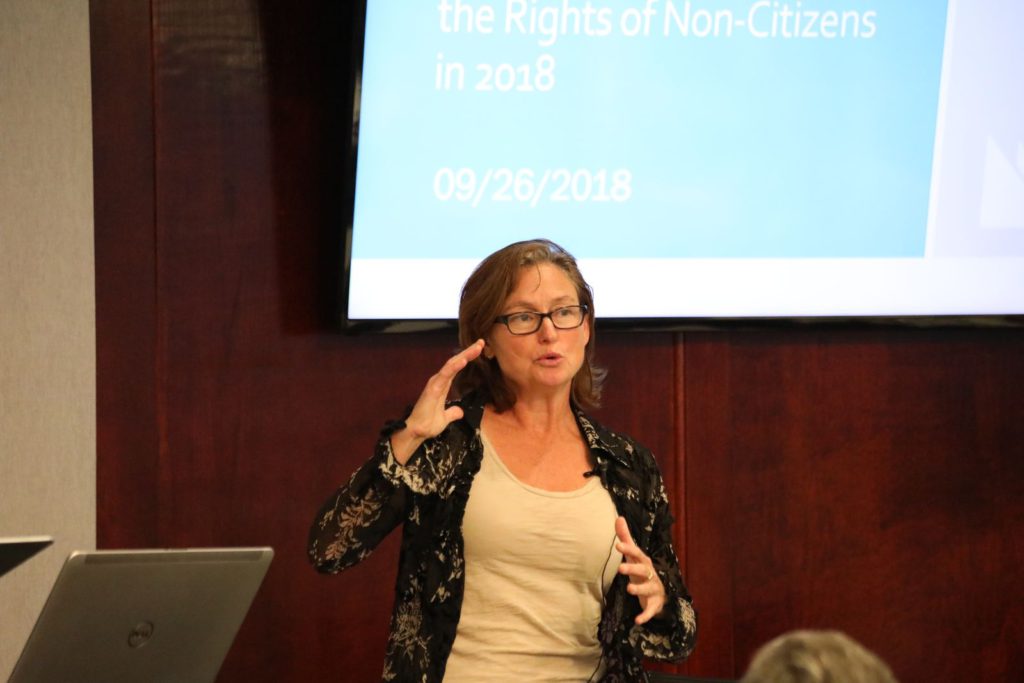
Even for seasoned lawyers, it can be intimidating to step outside their practice area and into the foreign territory of immigration law. But interest in pro bono immigration work remains high among Colorado lawyers, and a nonprofit has been training them to take on cases.
On Wednesday, the Rocky Mountain Immigrant Advocacy Network presented an all-day seminar to help familiarize non-immigration attorneys for pro bono work in the field. The program, “Immigration Law: Defending and Advancing the Rights of Non-Citizens in 2018,” drew more than 100 attendees to the Colorado Bar Association CLE headquarters near downtown Denver, with other attorneys viewing the seminar online.
Attendees came from an array of non-immigration practices, including criminal defense and civil litigation. Throughout the day they received overviews from immigration practitioners on how immigration courts and agencies operate to asylum law and other topics central to representing immigrants. One of the presentations featured a panel of Colorado attorneys from various legal backgrounds sharing their experiences and best practices for taking on cases referred by RMIAN.
The speakers talked about their past work through RMIAN, which included representing detained clients in bond and parole hearings as well as clients seeking asylum or special juvenile immigrant status. While the proceedings themselves are often unfamiliar to non-immigration attorneys, from the filings to dealing with government agencies like Immigration and Customs Enforcement, attorneys can still bring their experience to bear on the cases.

Franchise lawyer Hal Bruno, who is a shareholder with Robinson Waters & O’Dorisio in Denver, said his skills as a commercial litigator were applicable to immigration cases he’s taken on. “The same things that I do on a daily basis — prepping witnesses, prepping cases, meeting with clients for the first time … writing briefs — all of those things transfer over really well [to immigration court].”
Bruno said his clients through RMIAN have all been teenagers, and to represent them he drew from his experience as a father of two daughters. Juvenile immigrant clients can have issues with boyfriends and girlfriends, socializing, driving and other typical teenage concerns that might be relevant to their cases. Bruno has had to manage a case so his client wouldn’t miss school, and he even had to appear in traffic court for one of his clients.
Oil-and-gas attorney Phil Barber said he’s on his ninth pro bono case through RMIAN. Barber, who never practiced criminal law, described how intimidating it was to visit the detention center for the first time as a volunteer attorney — walking through crowds in the lobby, passing through security checkpoints, and even submitting paperwork to various agencies without knowing exactly where those documents go.
Kristi Radosevich, an estate law-focused attorney with Karnopp Radosevich & Preston in Elizabeth, echoed that impression. But she said one gets used to visiting the detention center and that RMIAN gives volunteers instructions on where to go and what to do. “The more often you go, the more comfortable you get.”
The panelists talked about what often makes immigration court proceedings frustrating or cumbersome, like how all filings, even still, are made on paper.

Many detainees’ cases are a matter of “hurry up and wait,” Bruno said — they might entail a day or two of heavy work, and then the case won’t move for weeks or months. But that at least makes it easier for the pro bono attorney to fit cases into his or her schedule, he noted.
Barber likened immigration law to tax law in that it’s “thick” and “mind-numbing.” But the practice becomes less daunting with some experience, he said.
“Having done a few of these [cases], I think gosh, there’s hope here. There is a place for a practicing lawyer who wants to make a difference in people’s lives to actually do that.”
The intrinsic reward of representing immigrants pro bono, the speakers agreed, is part of what brought them back to take more cases. Plaintiff’s wage-and-hour attorney Brandt Milstein said he would have been quicker to volunteer for immigration cases if he’d known how personally satisfying they could be.
Milstein specifically recalled a special immigrant juvenile status, or SIJS, case in which he advocated for a child who would have faced certain danger, he said, had the child been deported back to his country of origin. “That’s an experience that I wish I would have been told would be so rich going in,” Milstein said.
“You get to follow clients after their case is over, and you see people starting families, you see people getting jobs,” Barber said. He got invited to a quinceañera last year for the daughter of a client he’d represented through RMIAN in a case that took place before the daughter was born.
“I think it’ll remind you why you went to law school,” Radosevich told attendees. “You want to feel like you’re really making a difference? Take a case.”
— Doug Chartier

